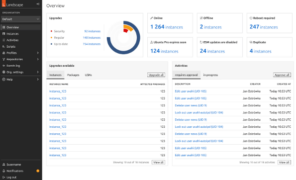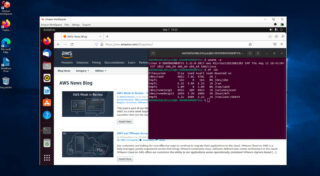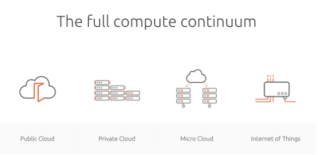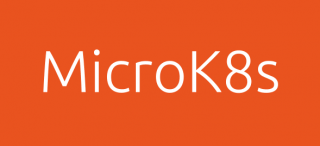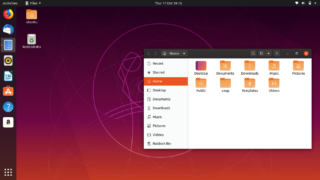Topic: ubuntu
Canonical releases Ubuntu Core 24
Canonical has announced the release of Ubuntu Core 24, which introduces a number of new features such as validation sets for container images, better GPU integration, and new device management integrations. “Ubuntu Core is the locked-down, hardened, embedded version of Ubuntu, that brings Ubuntu applications to the far edge and enables the next generation of … continue reading
Canonical and Intel partner to bring confidential computing to Ubuntu
Canonical and Intel have announced that they are collaborating to enable customers to take advantage of Confidential Computing, which is a practice that protects data that is in use. To support this practice, Intel recently introduced Intel Trust Domain Extensions (TDX), which is a hardware-based trusted execution environment (TEE) that allows hardware-isolated virtual machines, or … continue reading
Ubuntu 23.10 introduces deeper integration for admin tools and more secure app discovery
Canonical has announced the latest release of its Linux distribution, Ubuntu. Ubuntu 23.10 (codename Mantic Minotaur) introduces deeper integration for admin tools, upgraded app discovery, and support for Raspberry Pi 5 and SiFive HiFive Pro P550. According to Canonical, up until this release, administrators were required to adjust their workflow depending on whether they were … continue reading
Optimized real-time Ubuntu is now available on Intel processors
The publisher of Ubuntu, Canonical, has unveiled the release of Real-time Ubuntu optimized for Intel Core processors. This offering allows enterprises to leverage the benefits of optimized Linux running on Intel silicon, catering to a diverse array of applications, including telco workloads, critical medical equipment, and automation systems utilized in factory settings, Canonical explained. “With … continue reading
Canonical unveils support for real-time compute in Ubuntu
Canonical today unveiled support for real-time compute in Ubuntu in the release of Ubuntu 22.04 LTS. According to the company, real-time Ubuntu provides deterministic responses to external events, which cuts down on response times. This makes it ideal for use cases where there are low-latency requirements, like automotive, telecommunications, and aerospace and defense. “The real-time … continue reading
Canonical announces new Ubuntu images for Intel IoT platforms
Canonical announced the availability of new enterprise-grade Ubuntu images available for both Desktop and Server Ubuntu 20.04 LTS and 22.04 LTS and are designed for next-generation Intel platforms. As part of the new release, Intel and Canonical will jointly provide enterprise-class hardware and software support, ensuring product longevity. The production-ready Ubuntu releases are specially designed … continue reading
Amazon WorkSpaces announces support for Ubuntu
The team at Amazon recently announced that Ubuntu desktops can now be provisioned for developers, engineers, or data scientists. With this, virtual desktop users are enabled to have more choices as well as gain access to new categories of workloads. Support for Ubuntu also offers virtual desktop administrators a consistent experience regardless of whether they … continue reading
Canonical releases Ubuntu image for Google Cloud’s Tau T2A VMs
Google Cloud and Canonical, the company that releases Ubuntu, have announced that they have released a new Ubuntu image to be used for the preview of Google Cloud’s Tau T2A virtual machines (VMs). Tau T2A is Google Cloud’s VM for running on Arm architectures. “With the launch of T2A VMs on Google Cloud and corresponding … continue reading
ITOps Times Open-Source Project of the Week: MicroK8s
MicroK8s allows for low-ops, minimal production Kubernetes for devs, cloud, clusters, workstations, edge and IoT. It is a Cloud Native Computing Foundation (CNCF) certified upstream Kubernetes deployment that runs entirely on your workstation or edge device. The project automatically chooses the best nodes for the Kubernetes datastore, and when a cluster database is lost, another … continue reading
MicroK8s now natively available for Windows and macOS developers
Windows and macOS developers can now use MicroK8s natively. The Ubuntu team announced developers can interact with kubectl and MicroK8s through the Windows or Mac command line locally, similarly to how they would with Linux. This new capability is meant to provide better development, build, and test workflows on the desktop. MicroK8s is a lightweight … continue reading
Ubuntu 19.10 released with Kubernetes at the edge and multi-cloud infrastructure
The latest version of the open-source Linux distribution Ubuntu is now available. Version 19.10 comes with a strong focus on Kubernetes and the edge. Canonical has added strict confinement to MicroK8s — is zero-ops Kubernetes solution. According to the company, this will provide enhanced edge computing capabilities and ensure isolation and secure Kubernetes environments. Users … continue reading

